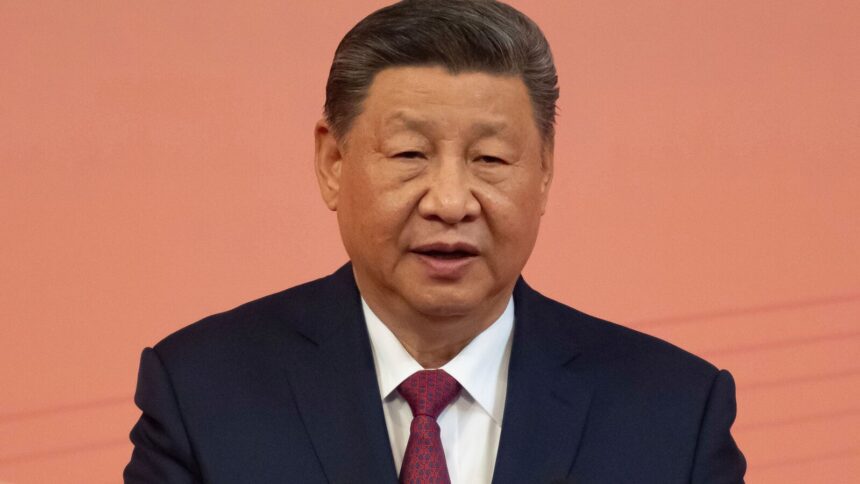Rediscovering Intellectual Freedom: The Rebirth of JF Books in Washington, D.C.
In a world where freedom of expression is often stifled, the story of JF Books serves as a beacon of hope for intellectuals and dissidents alike. Originally founded as Jifeng Books in the bustling underground of Shanghai’s city library, this bookstore stood as a bastion of liberal thought amid a tightening grip of state control under Xi Jinping’s regime. Its trajectory—from a local fixture to a diasporic haven in Washington, D.C.—reflects the ongoing struggle for intellectual freedom faced by many Chinese expatriates today.
A Brief History of Jifeng Books
Founded in 1997 by Yan Bofei, Jifeng Books quickly became known for its provocative discussions on democracy and labor rights, offering a selection of works that diverged sharply from the Communist Party’s preferred narratives. In 2012, Yu Miao acquired the bookstore with ambitions of continuing its legacy of liberal discourse. However, by 2018, the Chinese government sought to clamp down on such freedoms, opting not to renew the lease, thereby signaling the increasing intolerance towards dissenting voices in China’s cultural landscape.
This clampdown reflects broader patterns observed in China, where dissent is increasingly met with aggressive censorship and state surveillance. Following his relocation to America in 2019, Yu Miao faced additional challenges, including threats to his family’s safety due to his vocal resistance against the ruling party.
The Emergence of JF Books in Washington, D.C.
Rebranded as JF Books, the bookstore now finds itself in the Dupont Circle area of Washington, D.C., far from the oppressive environment of its former location. Since its September 2022 opening, JF Books has become more than just a bookstore; it has transformed into a vital intellectual hub for the Chinese community and a gathering place for those yearning for dialogue and expression.
With a curated selection of literature that challenges prevailing norms and stimulates critical thinking, JF Books attracts a diverse audience, including newly arrived Chinese students seeking resources, as well as older dissidents seeking connection and refuge. Throughout its short but impactful existence, prominent figures such as political scientist Minxin Pei and poet Ha Jin have held talks, fostering an environment rich in discourse and community engagement.
A Safe Space for Chinese Intellectuals Abroad
The necessity of spaces like JF Books cannot be overstated. Many of China’s liberal intellectuals are living in exile, silenced by a regime that fears dissent and alternative viewpoints. For these individuals, physical meet-ups are essential not only for the sharing of ideas but also for the rebuilding of a sense of belonging that is lost in exile. Yu Miao asserts that while the Chinese government may attempt to extinguish free expression, the intrinsic human desire to think and speak freely can never be fully repressed.
Moreover, JF Books stands alongside a burgeoning network of intellectual spaces established by Chinese émigrés in countries like Japan, Taiwan, and Thailand. This network serves as a counterweight to the Party’s oppressive tactics, maintaining the lifeblood of free expression and critical discourse.
The Future of JF Books and Intellectual Discourse
Looking ahead, the survival and growth of JF Books and similar establishments hinge on their ability to engage the community and adapt to shifting socio-political landscapes. With increasing discussions about democracy, human rights, and social justice resonating both within and outside China, the importance of such platforms becomes even more pronounced.
As the world watches the unfolding narratives in contemporary China, JF Books remains a testament to the resilience of intellectual freedom. It acts as a reminder that despite rigorous repression, the quest for truth and the sharing of ideas know no borders.
Conclusion
The journey of JF Books serves as an inspiring chapter in the story of resistance against authoritarianism. By fostering a community where ideas can flourish, Yu Miao and his team are ensuring that the spirit of inquiry and the need for dialogue endure—no matter the circumstances. In doing so, they contribute to a broader discourse about the value of free expression and the imperative to protect it for future generations.
As intellectuals and activists continue to seek refuge from oppression, the establishment of JF Books marks a significant stride toward reclaiming the spaces necessary for critical thought—pertinent not only to the Chinese diaspora but to anyone who values liberty and human rights in a world increasingly characterized by cautious silence.










